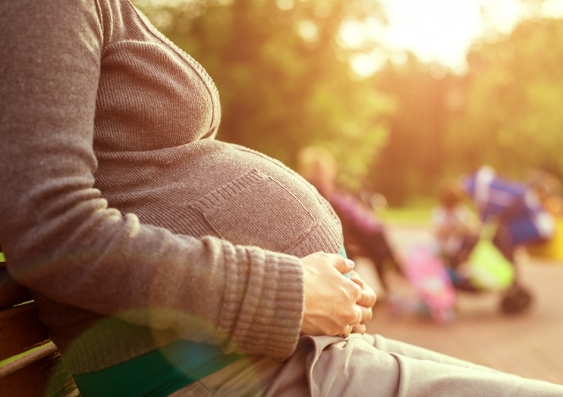Improved treatment after pregnancy complicated by high blood pressure: world-first study launched
A new study – led by a UNSW lecturer – will trial the best strategies for women and their babies who experienced high blood pressure during pregnancy.
A new study – led by a UNSW lecturer – will trial the best strategies for women and their babies who experienced high blood pressure during pregnancy.

Johanna Waide
South Eastern Sydney Local Health District
0437 017 149
A new study launched last month at St George Hospital will trial the best follow-up and lifestyle behaviour change strategies for women and their babies after experiencing a hypertensive disorder (high blood pressure) during pregnancy.
About one in 10 women in Australia have a hypertensive pregnancy, which equates to approximately 30,000 women affected annually.
Hypertensive disorders include preeclampsia, gestational hypertension or chronic hypertension.
The world-first study is aiming to recruit 500 women, and will be performed at five hospitals across Sydney including St George Hospital, the Royal Hospital for Women, Royal Prince Alfred Hospital, Liverpool Hospital and Campbelltown Hospital.
Study Chief Investigator, Dr Amanda Henry, Obstetrician, St George Hospital and Senior Lecturer, School of Women’s and Children’s Health, UNSW Sydney, said women who experience a hypertensive pregnancy were at increased risk of long-term health problems.
“Many studies have demonstrated that although blood pressure will return to normal for most women after a hypertensive pregnancy, they have at least double the long-term risk of heart attack, stroke and developing diabetes, and triple the risk of chronic high blood pressure, compared to women who had an uncomplicated pregnancy,” Dr Henry said.
“However, it is unknown whether monitoring or treatments in the first few years after a hypertensive pregnancy can improve health risks or outcomes for either a mother or her baby.
“The Blood Pressure Postpartum Study – or BP2 – is aiming to answer that question by trialling different methods of follow up and encouraging a healthy lifestyle after a hypertensive pregnancy,” Dr Henry said.
Study participants will be assigned one of three pathways for ongoing care, including follow up with a GP, attending a postpartum clinic or participating in a lifestyle program.
Women and their babies will return to the hospital where they gave birth for further follow up and assessment six months after birth, and then at annual intervals from when their baby turns one.
“The study methods being investigated differ from the standard treatment offered after a woman has a hypertensive pregnancy because they include structured, consistent information packages, education tools and a specific hospital postpartum clinic for women,” Dr Henry said.
“Currently, few women receive appropriate follow-up, counselling or tools to support their long-term health.
“Because pregnancy identifies a group of relatively young women at higher risk of heart disease, our team of researchers are hopeful the study will identify effective interventions that can improve the future health of thousands of Australian women,” Dr Henry said.
BP2 is funded by the NSW Health Translational Research Grants Scheme, and is supported by the NSW Health Get Healthy Service.
Study partners include the Heart Foundation and patient advocacy group Australian Action on Preeclampsia (AAPEC).
This study is supported by the NSW Health Translational Research Grants Scheme which has provided funding of $632,843 over two years, starting in July 2018.
For further information about BP2, please contact Lynne Roberts, Study Coordinator, on: 02 9113 2117 or email lynne.roberts2@health.nsw.gov.au.